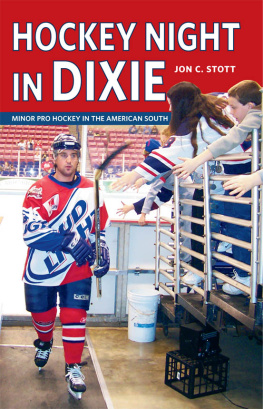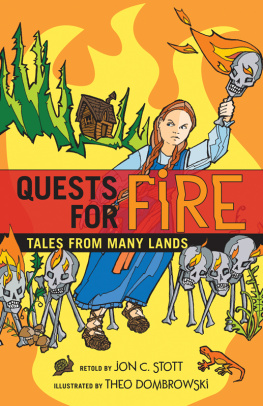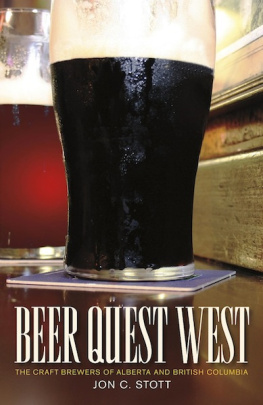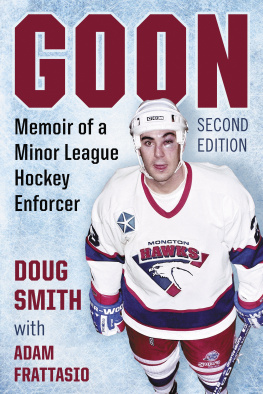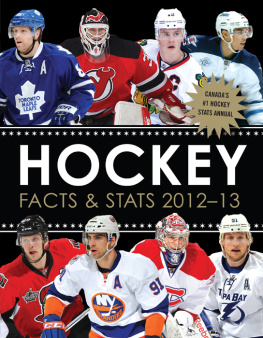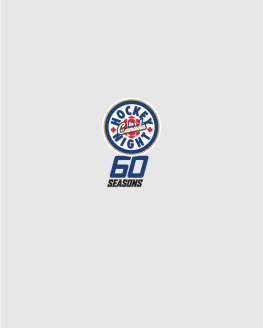
APPALACHIAN AUTUMN
The Roanoke Valley Vipers of the United Hockey League
The Roanoke Valley, nestled in the mountains of western Virginia, is one of the most traditional of minor-league hockeys nontraditional markets. Professional hockey has been played in Salem, Roanoke and the nearby town of Vinton since 1967. Clubs have been members of the Eastern Hockey League, Southern Hockey League, Atlantic Coast Hockey League and All-American Hockey League. The Virginia Lancers, playing first in Vinton and later in Roanoke, were a charter member of the East Coast Hockey League in 1988, and as the Lancers, Rebels, Rampage and Express they remained ECHL members until July 20, 2004, when the league revoked the franchise. In the spring of 2005, the United Hockey League awarded an expansion franchise to Roanoke.
MONDAY NOVEMBER 7, 2005
During the first week of November 2005, the Roanoke Valley didnt seem like hockey country. The Appalachian Mountains to the east were dappled with green and russet colors, indicative of the fall season just beginning. The Monday morning sports section of the Roanoke Times featured front-page stories about college and professional football and NASCAR racing. On page three, a small, 150-word story and accompanying summary recounted the Sunday night victory of the Roanoke Valley Vipers, who had traveled to Connecticut to defeat the Danbury Trashers. On the statistics page, the UHL and NHL results and standings followed auto racing, football and golf statistics. The Vipers, with three wins and three losses, occupied third place in the five-team Eastern Division.
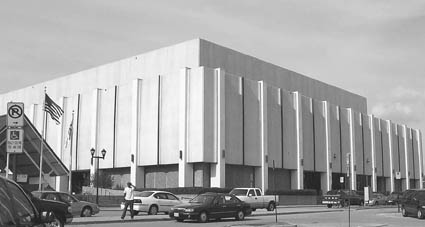
The Roanoke Civic Center, which first opened in 1971, was the home of both the Vipers and the Dazzle, a minor-league basketball team. Both clubs folded after the 200506 season, leaving Center officials with 60 open dates to fill for the upcoming fall and winter.
In the breakfast room of the Comfort Inn, half-a-dozen tall, lanky young men wearing basketball warm-up pants and T-shirts with such slogans as Charleston Basketball Classic 2000 sat awkwardly on too-small chairs around too-small tables, eating cereal and muffins. They were attending the training camp of the Roanoke Dazzle, a team in the National Basketball Developmental League, the Vipers chief rival for minor-league sports fans and, with the Vipers and the Roanoke Symphony, co-tenants of the Roanoke Civic Center. Three weeks earlier, hockey players had stayed at the same hotel, but somehow the young basketball hopefuls seemed more natural in the setting.
In Valley View Mall, a 10-minute walk from the hotel, six stores sold athletic apparelhats, T-shirts and jacketsbearing the names of various local and national teams. One store carried nothing but Washington Redskins merchandise, the Redskins being the areas National Football League team of choice. Another offered only clothing bearing the logo of college football power Virginia Tech, which is located in nearby Blacksburg. The other stores featured college apparel along with NFL, National Basketball Association and Major League Baseball hats and uniforms. There was no NHL merchandise and none from the Roanoke Valley Vipers.
By the early afternoon, the temperature in Roanoke had risen to the low 70s. Downtown, at the Civic Center, sweaters or jackets were unnecessary, even for people standing next to the boards. That was because there was no ice. The ice-making machinery had broken down late Thursday night, and the Vipers Friday and Saturday night hockey games had been canceled. No practice had been scheduled for Monday, and Civic Center workers were correcting the mechanical problems and preparing to lay a new ice surface so that the team could practice on Tuesday. Monday would be the Vipers only day off for the week.
The front-office staffat five people, one of the smallest in the leaguedidnt have time to lament the weekends lost games and revenue; they had to prepare for four home games in five days. They held the usual front-office hockey jobs: business and game-day operations, media and community relations, broadcasting, corporate sales and group sales. There was no general manager; co-owner Kristen Dixon coordinated business activities from her home in Canton, Ohio. However, with a busy home schedule ahead, she would be arriving in Roanoke any day.
What was surprising about the group was that the two most experienced members were women: Amy Webb, a Roanoke resident, who had worked for the Vipers ECHL predecessor, the Express; and Kris House, who arrived in Roanoke during the summer of 2005 after several seasons working for pro hockey teams in Binghamton, New York. Different in background, age and temperament, the two had in common a love of hockey and an enthusiasm for, and real competence in, their jobs.
When Amy Webb was in her final year of high school, she took an internship with the Roanoke Express as part of her program of studies in sports management. I was a gofer in the press box during game day, getting information for the announcers and phoning in scores. I really enjoyed the experience and wanted to stay on after the season had ended. It took a long time to make contact with the owners, but finally they offered me a job at $230 a week. I spent the summer calling people, trying to get them to buy season tickets, and in the fall, when the players were back, I took them to schools and other places. There was one old lady who was in a nursing home; one of the players and I visited her regularlyshe loved it.
Although Webb was working long hours as director of media and community relations, and loving every minute of it, the Expresss fortunes were in decline. The hands-off ownership group had disillusioned both corporate sponsors and fans, the teams main sources of revenue. When the season ended, we had to go on as if everything was fine, and so we began to work on season-ticket renewals. Then came 2:30 pm, Tuesday, July 20, 2004. The league called to say that the franchise had been revoked. Webb gathered her stuff, along with a few game-worn jerseys. They had been marked for sale, but with no organization to sell them, she sent them to the players. I think it gave me a kind of closure. The next eight months were difficult for Webb. I wanted hockey; I wanted the Express back.
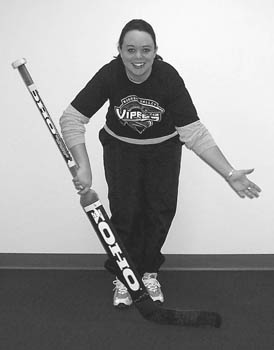
Amy Webb, the Vipers community and media relations director, has yet to play goal for the team. But theres no doubt she would try if she felt it would help the club and bring more fans into the Roanoke Civic Center.
Then, in March 2005, she learned that the UHL was going to place a franchise in the Civic Center for the 200506 season. A friend whod worked with the Express had contacted [UHL commissioner] Richard Brosal and, in the conversation, had mentioned my work in hockey. I said to myself, It was a sign! Within a couple of weeks, the new owners, Ken and Kristen Dixon, had offered her a job. As the franchises only employee, she set up a long banquet table and a folding chair, picked up the telephone and began calling people on a list of prospective season-ticket holders.
Webb admitted that she faced many challenges during the long summer hours that followed. We didnt hire a sales person until the end of May, and it was only then that we were able to go after cor-porate sponsors. At the same time, she coordinated the teams efforts to create a visible identity, announcing the team name, displaying the new logoa coiled snake behind the word Viper, which is underlined with a hockey stickintroducing the mascot and conducting a name-the-mascot contest. One of the most effective strategies for bringing the new team to the publics attention involved six billboards placed around the town. On them, a familytwo parents and two childrensmiled happily. Three were missing teeth. Beneath the picture ran the slogan Its a family affairRoanoke Valley Vipers. It certainly drew a more favorable response than a Christmas billboard created by the Express two years earlier: the picture of a hockey player with a raised fist and the slogan Seasons Beatings.
Next page
